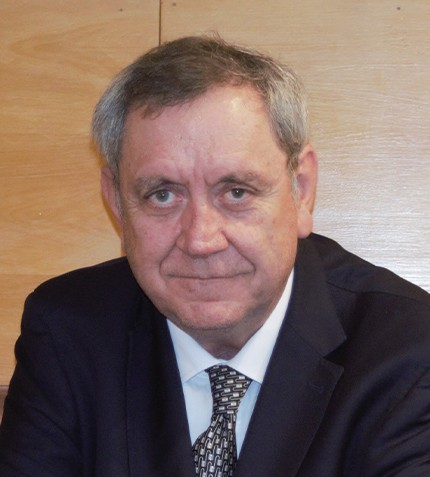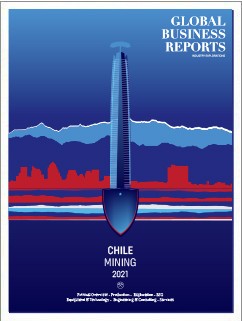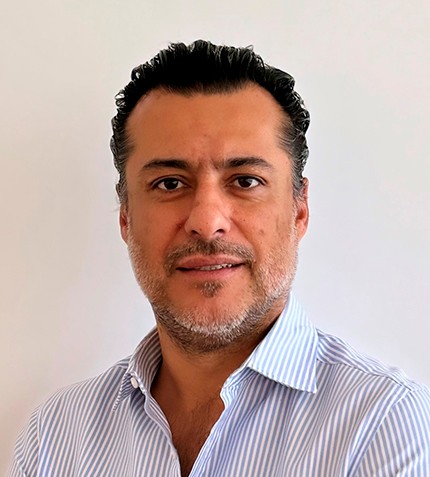
"The industry’s commitment to safety and the implementation of strict protocols, together with the hard work of everyone involved in the sector, kept operations going and maintained productivity."
RELATED PUBLICATION
Marco Riveros
VICE PRESIDENT, CHILEAN COPPER COMMISSION (COCHILCO)
Why do you think Chile has been so resilient to the challenges posed by Covid-19?
2020 has been a year of great uncertainty, and despite variations in companies’ production projections, Chile’s mining sector has demonstrated remarkable resilience and has been able to overcome these challenges successfully. The industry’s commitment to safety and the implementation of strict protocols, together with the hard work of everyone involved in the sector, kept operations going and maintained productivity.
During the pandemic, Cochilco played a fundamental role in Chile, acting as a government adviser in everything related to copper and its by-products. This organization is directed by a council consisting of government ministers of mining and finance, relevant individuals from the central bank, and people appointed by the President of the Republic from the private sector. Our activities are carried according to the council’s decisions, which is how we manage to operate with great objectivity and have been a highly valued institution. Cochilco safeguards the public interest of the state-owned mining companies Codelco and Enami by auditing corporate processes and operations and compliance with the applicable laws. The Commission also evaluates the associated risks and their impact on operations.
What are Cochilco’s investment predictions for Chile’s mining industry for this decade?
Before the pandemic, Cochilco projected an investment of US$74 million in Chile’s mining industry for the 2020-2029 period. Despite the effects of the pandemic and the uncertainty generated by it, we maintain this estimation since the factors that allow us to calculate investment have not been altered. This is also due to the fact that mining projects have long-term horizons.
Can you elaborate on the current state of mining exploration?
Exploration is a very significant aspect of Chile’s mining industry, but one of the consequences of the pandemic has been a decrease in investment in this activity. The country is currently experiencing the challenge of declining grades of mature mines, so increasing exploration is the perfect remedy for this.
What is the potential for the gold mining industry in Chile?
Chile’s prominent role as a copper producer often causes other metals to be overlooked. While gold production is typically associated with countries such as Mexico and Peru, Chile also has significant gold reserves. In fact, US$3 billion in investments have been recently announced in gold and silver projects for 2020-2029. Currently, there are also substantial development prospects for the lithium industry.
Will lithium regulation be addressed in the following years?
Lithium is becoming highly relevant in sectors such as electromobility and the condensation of clean energies. According to Chile’s legislation, lithium is a non-concessionary element. This means that its exploitation can be undertaken in public properties, which can be rented through special agreements, or it can also be done in collaboration with private companies. Taking into account that lithium is often found in water solutions under the surface, it is likely that its legislation will have to adapt to prevent its extraction from altering the aquifer basins significantly.
What is your view regarding the debate on whether we are witnessing a new commodity “supercycle”?
The price of copper responds to the laws of supply and demand. A supercycle involves a long boom in demand that drives up prices until they get so high that demand collapses, pulling prices back down. Currently, we are not seeing a difference between the supply and demand of copper big enough to constitute a supercycle. It is important to be cautious; during 2020, and especially in the last months, we have seen other factors besides supply and demand that have affected the increase in copper prices, such as the increase in money supply in economies like the US.
Do you have a final message for our international readers?
Chile’s mining industry will manage to overcome the economic challenges after the pandemic and will continue to be a world leader, making great efforts to direct its activities towards sustainability and environmental protection. We want to transmit our confidence to mining investors in Chile that mining rules will be respected and will keep progressing despite the constitutional reform, always in compliance with international treaties. The formula against uncertainty in the mining industry involves confidence and hard work.











